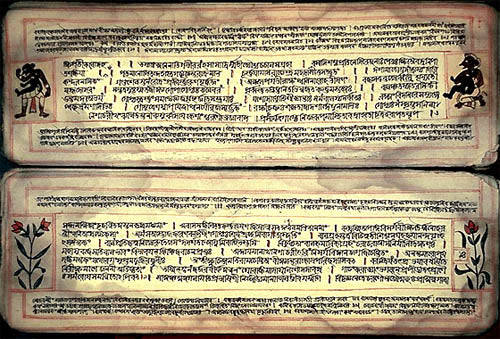
Exploring the Concept of Karma in Upanishads and Its Implications
The concept of Karma is a fundamental aspect of Indian philosophy and spirituality, deeply rooted in the Upanishads - ancient sacred texts at the core of Hinduism. Karma, the law of cause and effect, governs the actions and consequences of individuals, shaping their present and future experiences. In this blog, we delve into the concept of Karma as elucidated in the Upanishads, exploring its profound implications on human life, morality, and the path to spiritual liberation.
- Understanding Karma in the Upanishads
The Upanishads teach that every action, intention, and thought has a corresponding consequence. This law of cause and effect, known as Karma, operates as a cosmic force, intricately interwoven with the cycles of birth and rebirth (Samsara).
According to the Upanishads, the nature of Karma is not just limited to the physical realm but extends to the realm of consciousness and the soul. Thus, one's actions and intentions not only influence their present life but also shape their future incarnations.
- The Concept of Dharma and Righteous Action
The Upanishads emphasize the significance of Dharma, which denotes righteous duty and moral order. Living in accordance with Dharma ensures that one's actions are virtuous, ethical, and aligned with the greater harmony of the universe. By adhering to Dharma, individuals accumulate positive Karma, leading to favorable future outcomes and spiritual evolution.
- Liberation from the Cycle of Samsara
The ultimate implication of the concept of Karma in the Upanishads is its role in the cycle of Samsara - the continuous cycle of birth, death, and rebirth. The actions and Karma of past lives influence the circumstances and experiences of the present life, and the cycle perpetuates until the soul attains spiritual liberation (Moksha).
- The Doctrine of As You Sow, So Shall You Reap
The Upanishads present a clear doctrine of "As you sow, so shall you reap," encapsulating the essence of Karma. This teaching highlights that individuals bear the consequences of their own actions, both positive and negative. By understanding the karmic consequences of their deeds, individuals are encouraged to exercise discernment and make choices that align with righteousness and ethical conduct.
- The Role of Free Will and Destiny
While Karma dictates the consequences of actions, the Upanishads also acknowledge the existence of free will (Purushartha). Individuals have the power to choose their actions and intentions, and through wise choices, they can shape their future Karma and spiritual journey.
However, the concept of destiny (Prarabdha Karma) is also present, signifying that certain karmic actions and their consequences are predetermined and beyond individual control. This combination of free will and destiny creates a dynamic interplay in the unfolding of life experiences.
- The Path to Spiritual Liberation
The Upanishads emphasize that the ultimate goal of human life is to break free from the cycle of Samsara and attain spiritual liberation (Moksha). To achieve this, one must engage in righteous actions, selfless service (Karma Yoga), devotion (Bhakti Yoga), and self-inquiry (Jnana Yoga).
Conclusion
The concept of Karma, as expounded in the Upanishads, holds profound implications on human life, morality, and spiritual evolution. It teaches the interconnection between actions and consequences, guiding individuals to live in alignment with Dharma and make choices that lead to positive outcomes. Understanding Karma also reminds us of the responsibility we hold for our own destiny and the opportunity for spiritual growth through righteous living.
By contemplating the concept of Karma, we gain insights into the profound interplay of cause and effect, shaping our present and future experiences. As we strive to sow positive seeds through virtuous actions, we journey towards spiritual liberation, breaking the cycle of Samsara and realizing the eternal truth within ourselves. The concept of Karma, as elucidated in the Upanishads, remains a timeless guiding principle on the path to self-realization and liberation.
By Nishita Khanna
(The images used in this blog post are not owned by Anime Devta, they are just to help the readers)

